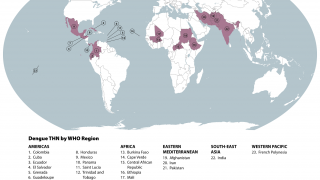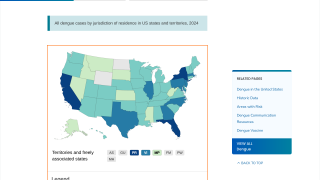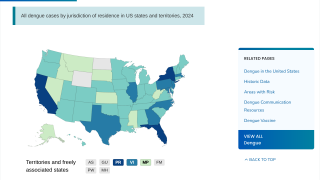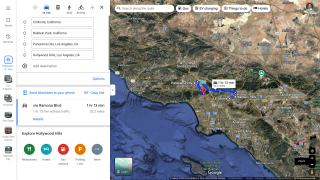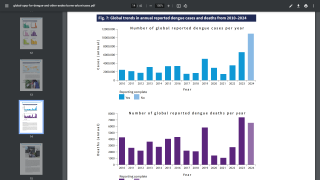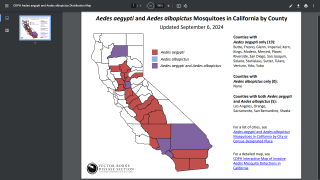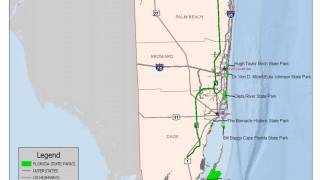Dengue Outbreaks in the Americas Continue in 2020

Dengue risk in many parts of Central and South America, Mexico, and the Caribbean have continued into 2020, says the latest Travel Alert issued by the US Centers for Disease Control and Prevention (CDC).
The CDC said in an updated Level 1 Travel Alert published on February 20, 2020 ‘various countries in the Americas are reporting increased numbers of dengue cases and travelers to these areas should protect themselves by preventing mosquito bites.’
In the Americas, an infected mosquito (Ae. aegypti or Ae. albopictus) can spread the dengue virus to people.
Because dengue is spread by mosquito bites, all travelers to risk areas should prevent mosquito bites by using an EPA-registered insect repellent, wearing long-sleeved shirts and long pants when outdoors, and sleeping in an air-conditioned room or room with window screens or under an insecticide-treated bed net.
Dengue can become severe within a few hours.
Severe Dengue is a medical emergency, usually requiring hospitalization. In severe cases, health effects can include hemorrhage, shock, organ failure, and death says the CDC.
Since there is no specific treatment for dengue infections, early detection and access to proper medical care lowers fatality rates to below 1 percent, says the CDC.
Dengue disease can take up to 2 weeks to develop with illness generally lasting less than a week. The health effects of dengue include fever, headache, nausea, vomiting, rash, muscle and joint pain, and minor bleeding.
Additionally, the CDC says a pregnant woman infected with dengue can pass the virus to her fetus during pregnancy.
This reissued Travel Alert highlights these countries as reporting dengue outbreaks in 2020:
- Belize
- Brazil
- Colombia
- Costa Rica
- Dominican Republic
- El Salvador
- Guatemala
- Honduras
- Mexico
- Nicaragua
- Paraguay
- Peru
Dengue is common in more than 100 countries around the world, and about 3 billion people live in areas with a risk of contracting 1 of dengue’s 4 virus types.
When an individual is infected with one dengue serotype, subsequent infection with another serotype may result in the development of more intense infections.
There is no FDA cleared test available to determine a previous dengue infection. The available non-FDA cleared tests may yield false-positive results, due to cross-reactivity with other flaviviruses.
In total, the CDC confirmed 1,203 dengue cases in the USA, and an additional 56 in the US Territories during 2019.
In the USA, the state of Florida has reported both travel-related (395) and locally acquired (16) dengue cases in 2019.
And during 2020, Florida has reported 13 cases of dengue fever with onset in 2020 by individuals with travel history to a dengue-endemic area in the two weeks prior to onset.
The Florida counties reporting dengue cases were: Broward (5), Franklin, Hillsborough (3), Miami-Dade (3), and St. Lucie.
The Dengvaxia vaccine is the only approved dengue vaccine in the USA.
And, Dengvaxia is approved for use in several countries in the Americas.
Dengvaxia is indicated for the prevention of dengue disease caused by dengue virus serotypes 1, 2, 3 and 4. Dengvaxia is not approved for use in individuals not previously infected by any of the dengue virus 4 serotypes or for whom their immunization information is unknown.
The CDC suggests people considering a dengue vaccination should first speak with a qualified healthcare provider.
Dengue travel news is published by Vax-Before-Travel.
Our Trust Standards: Medical Advisory Committee

